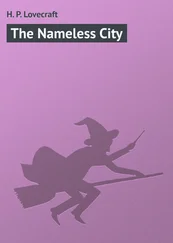Maurus Jokai - The Nameless Castle
Здесь есть возможность читать онлайн «Maurus Jokai - The Nameless Castle» весь текст электронной книги совершенно бесплатно (целиком полную версию без сокращений). В некоторых случаях можно слушать аудио, скачать через торрент в формате fb2 и присутствует краткое содержание. Город: New York, Год выпуска: 1898, Издательство: Doubleday, Page & Company, Жанр: Историческая проза, на английском языке. Описание произведения, (предисловие) а так же отзывы посетителей доступны на портале библиотеки ЛибКат.
- Название:The Nameless Castle
- Автор:
- Издательство:Doubleday, Page & Company
- Жанр:
- Год:1898
- Город:New York
- ISBN:нет данных
- Рейтинг книги:4 / 5. Голосов: 1
-
Избранное:Добавить в избранное
- Отзывы:
-
Ваша оценка:
- 80
- 1
- 2
- 3
- 4
- 5
The Nameless Castle: краткое содержание, описание и аннотация
Предлагаем к чтению аннотацию, описание, краткое содержание или предисловие (зависит от того, что написал сам автор книги «The Nameless Castle»). Если вы не нашли необходимую информацию о книге — напишите в комментариях, мы постараемся отыскать её.
The Nameless Castle — читать онлайн бесплатно полную книгу (весь текст) целиком
Ниже представлен текст книги, разбитый по страницам. Система сохранения места последней прочитанной страницы, позволяет с удобством читать онлайн бесплатно книгу «The Nameless Castle», без необходимости каждый раз заново искать на чём Вы остановились. Поставьте закладку, и сможете в любой момент перейти на страницу, на которой закончили чтение.
Интервал:
Закладка:
“A lady? Is she pretty?”
“She is young.”
“Didst thou see her through the telescope? What kind of hair has she got?”
“Blonde.”
“Then she must be very pretty. May I take a look at her some time?”
“I am afraid thou mightest fall in love with her; for she is very beautiful, and very good.”
“How dost thou know she is good?”
“Because she visits the sick and the poor, and because she goes regularly to church.”
“Why do we never go to church?”
“Because we profess a different belief from that acknowledged by those persons who attend this church.”
“Do they pray to a different God from ours?”
“No; they pray to the same God.”
“Then why shouldn’t we all go to the same church?”
Unable longer to control himself, Ludwig took the shrewd little child-head between his hands, and said tenderly:
“My darling! my little queen! not all the synods of the four quarters of the globe could answer thy questions—let alone this poor forgotten soldier!”
“There! thou always pretendest to be stupid when I want to borrow a little bit of thy wisdom. Thou art like the rich man who tells the beggar that he has no money. By the way, I must not forget that I always send money to the poor children on my birthday. Come, tell me which of the heaps I shall send to-day—these small coins, or these large ones? If thou thinkest I ought to send these little yellow ones, I have no objections. I think I prefer to keep the white coins, they have such a musical sound; besides, they have the image of the Virgin. If thou thinkest I ought to send some of the large red ones, too, I will do so.”
The “little yellow ones” were gold sovereigns; the “white coins” were silver Zwanziger ; and the “large red ones” were copper medals of the Austrian minister of finance, worth half a guilder.
“We will send some of the small coins and some of the large ones,” decided Ludwig, smiling at the little maid’s ignorance of the value of the money.
CHAPTER III
Tradition maintained that many years before, during the preceding century, the tongue of land now occupied by the Nameless Castle was part of the lake; and it may have been true, for Neusiedl Lake is a very capricious body of water. During the past two decades we ourselves have seen a greater portion of the lake suddenly recede, leaving dry land where once had been several feet of water. The owners of what had once been the shore took possession of the dry lake bottom; they used it for meadows and pastures; leased it, and the lessees built farm-houses and steam-mills on the “new ground.” They cultivated wheat and maize, and for many years harvested two crops a year. Suddenly the lake took a notion to occupy its old bed again; and when the water had resumed its former level, fields and farms had vanished beneath the green flood; only here and there the top of a chimney indicated where a steam-mill had been. Magic tricks like this Neusiedl Lake has played more than once on trusting mortals.
On either side of the peninsula on which stood the Nameless Castle was a little cove. One of these the count had spoken of to Marie; the other separated the castle from the village of Fertöszeg.
The manor, the habitation of the owner of the Fertöszeg estate, stood on the slope of a hill at the eastern end of the village, and fronted, as did the neighboring castle, on the lake.
In the second half of the month of August, in the year 1806, one might have seen from the veranda of the manor, after the sun had gone down and the marvelous tints of the evening sky were reflected in the water, a small boat speed out from the cove on the farther side of the Nameless Castle, trailing after it a long silvery streak on the parti-colored surface of the lake. A solitary man sat in the boat.
But what could not be seen from the veranda of the manor was that a girlish form swam a little in advance of the boat.
Marie had proved an excellent scholar in the school of the hydriads. Already after the fourth lesson she could swim alone, and sped over the waves as lightly and gracefully as a swan.
She did not need to wear a hat on these evening swimming excursions; her long hair floated unbound after her on the waves. When the twilight shadows deepened, the swimmer would speed far ahead of the accompanying canoe. She had lost all fear of the water. The waves were her friends—they knew each other well. When she wished to rest, she would turn her face to the sky, fold her arms across her breast, and lie on the waves as among swelling cushions like a child in a rocking cradle. And here she was allowed the full privileges of a child. She shouted; called to the startled wild geese; teased the night-swallows, and the bats skimming along the surface of the lake in quest of water-spiders. Here she even ventured to sing, and gave voice to charming melodies, which floated over the water like the sounds of an Æolian harp.
Many hours were spent thus on the lake. The little maid never wearied of the water. The protecting element restored to her nerves the strength which the stepmotherly earth had taken from them. A promenade of a hundred steps would tire her so that she would have to stop and rest. She had become unused to walking. But here in the water she moved about like a Naiad; her whole being was transformed; she lived! Then, when her guardian would call her, she would swim back to the canoe, clamber into it, and spread her long hair over his knees to dry while they rowed back to the shore. Poor little maid! She declared she had found happiness in the water.
One evening, after the waning moon had risen, Ludwig’s canoe, as usual, followed Marie, who was swimming a considerable distance ahead. Among the peculiarities of Neusiedl Lake are its numerous islets, the shores of which are thickly grown with rushes, and covered with broom and tall trees. Such an island lay not far from the shore in front of the Nameless Castle; it had frequently aroused Marie’s curiosity.
The little maid was now permitted to swim as far out into the open world of waves as she desired, only now and again signaling her whereabouts through a clear-toned “Ho, ho!”
During this time Ludwig reclined in his boat, and while the waves gently rocked him, he gazed dreamily into the depths of the starry sky, and listened to the mysterious voices of the night—the moaning, murmuring, echoing voices floating across the surface of the water.
Suddenly a piercing scream mingled with the mysterious voices of the night. It was Marie’s voice.
Frantic with terror, Ludwig seized his oars, and the canoe shot through the water in the direction of the scream.
The trail of light left behind her by the swimmer was visible on the calm surface of the lake. Suddenly it made an abrupt turn, and began to form a gigantic V. Evidently the little maid was impelled by desperate terror to reach the protecting canoe. When she came abreast of it she uttered a second cry, convulsively grasped the edge of the boat, and cast a terrified glance backward.
“Marie!” cried the count, greatly alarmed, seizing the girdle about her waist and lifting her into the canoe. “What has happened? Who is following you?”
The child trembled violently; her teeth chattered, and she gasped for breath, unable to speak; only her large eyes were still fixed with an expression of horror on the water.
Ludwig looked searchingly around, but could see nothing. And yet, after a few seconds, something rose before him.
What was it? Man or beast?
The head, the face, were head and face of a human being—a man, perhaps. The cheeks and head were covered with short reddish hair like the fur of an otter. The long, pointed ears stood upright. The mouth was closed so tightly that the lips were invisible. The nose was flat. The eyes, like those of a fish, were round and staring. There was no expression whatever in the features.
Читать дальшеИнтервал:
Закладка:
Похожие книги на «The Nameless Castle»
Представляем Вашему вниманию похожие книги на «The Nameless Castle» списком для выбора. Мы отобрали схожую по названию и смыслу литературу в надежде предоставить читателям больше вариантов отыскать новые, интересные, ещё непрочитанные произведения.
Обсуждение, отзывы о книге «The Nameless Castle» и просто собственные мнения читателей. Оставьте ваши комментарии, напишите, что Вы думаете о произведении, его смысле или главных героях. Укажите что конкретно понравилось, а что нет, и почему Вы так считаете.












